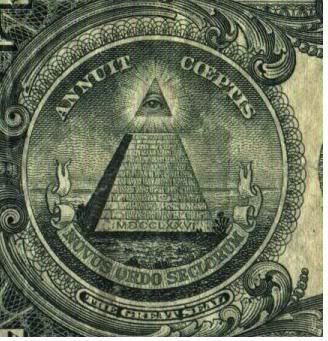He who does not economize will have to agonize. --Confucius


I've been thinking a lot about thrift lately. Is it good or is it bad?
Like a lot of people, I was brought up to believe thrift is good. When we were in third grade, the school and the local bank got together and issued us all little envelopes for junior savings accounts. There was a lot of talk about Benjamin Franklin and perseverance and hard work. We were supposed to bring in our pittance to show we understood.
Back then, as I pictured myself shoveling bales of money out of the bank vault in my dotage, I thought of thrift and savings as the best thing ever. As I grew up, I came to think of being frugal as a way of imposing discipline on the vendors. Demand value and they'll give it, was my thinking.
Then, as global warming got to be a bigger deal, reusing plastic bags and old clothes became yet one more reason to be a cheapie.
Now come the economic experts to tell me that frugality is, in fact, bad. "Disastrous," as a story in the New York Times puts it.
Worried people have suddenly shut off the spending spigot, we are experiencing the "paradox of thrift." Goods and services are not purchased. Stores and factories go broke. They lay off more people who can no longer afford to buy goods and services. Ad infinitum.
CNBC, where I go for my daily "stories," was moaning just yesterday about the fact that the Chinese save too much. How can the world economic crisis be averted unless the frugal Chinese stop saving and start throwing money around like Americans used to do? the host wondered.
Let me just insert here that THIS AIN'T FAIR. It ain't fair, it ain't fair. Let me say it again: It ain't fair!
When you live mostly off one income, being cheap is one of the few ways you can feel smugly superior to your neighbors. I've been known to make special trips out of my way in the grocery store so I can see what those fools are paying nowadays for store bought bread.
I enjoy the astronomical price at the meat counter for fillet mignon. $17.99 a pound? Ha! We have a bag full of fillets in the freezer from a whole tenderloin we bought for $7.99 a pound.
What's that you say? You like Gain detergent. Well I suppose I would try it, except I make my own liquid laundry soap a gallon and a half at a time.
I'm so glad you like my spaghetti sauce. I have this garden, so I haven't bought tomato sauce for a decade.
So yes, even though Publilius Syrus says "Frugality is misery in disguise," I get a certain enjoyment from pinching pennies. I look at my little savings and it makes me happy, even optimistic.
Ever since I reached adulthood, all I remember hearing from financial experts is how our generation is horrible with money. We didn't save enough for our kids' college. We didn't save enough for our own retirement. We used credit cards. We splurged on pricey things we liked. We wouldn't be sensible. We should be more like our parents and grandparents, or even the Chinese, who save some incredible amount of their income.
So now--now that we are all learning how to darn socks and bake bread--where's the love?
We should be getting accolades from all those financial experts. Instead, we're getting the blame.
The economy won't turn around, it seems, unless we abandon responsibility and resume spending money we don't have as fast as we can. Once again, baby boomers can be blamed both for getting us into the recession/depression and for not getting us out of it.
Well, I'm sorry. But it's too late to change. All those little savings, and the thought of how I've beaten The Man make me too happy. Besides, if everybody became frugal, maybe the pricing of goods and wages would be more realistic. If everyone is a penny pincher, it really would impose a discipline on the marketplace. Or maybe I'm just being too optimistic.
Look here for some good thoughts on this subject.
Back then, as I pictured myself shoveling bales of money out of the bank vault in my dotage, I thought of thrift and savings as the best thing ever. As I grew up, I came to think of being frugal as a way of imposing discipline on the vendors. Demand value and they'll give it, was my thinking.
Then, as global warming got to be a bigger deal, reusing plastic bags and old clothes became yet one more reason to be a cheapie.
Now come the economic experts to tell me that frugality is, in fact, bad. "Disastrous," as a story in the New York Times puts it.
Worried people have suddenly shut off the spending spigot, we are experiencing the "paradox of thrift." Goods and services are not purchased. Stores and factories go broke. They lay off more people who can no longer afford to buy goods and services. Ad infinitum.
CNBC, where I go for my daily "stories," was moaning just yesterday about the fact that the Chinese save too much. How can the world economic crisis be averted unless the frugal Chinese stop saving and start throwing money around like Americans used to do? the host wondered.
Let me just insert here that THIS AIN'T FAIR. It ain't fair, it ain't fair. Let me say it again: It ain't fair!
When you live mostly off one income, being cheap is one of the few ways you can feel smugly superior to your neighbors. I've been known to make special trips out of my way in the grocery store so I can see what those fools are paying nowadays for store bought bread.
I enjoy the astronomical price at the meat counter for fillet mignon. $17.99 a pound? Ha! We have a bag full of fillets in the freezer from a whole tenderloin we bought for $7.99 a pound.
What's that you say? You like Gain detergent. Well I suppose I would try it, except I make my own liquid laundry soap a gallon and a half at a time.
I'm so glad you like my spaghetti sauce. I have this garden, so I haven't bought tomato sauce for a decade.
So yes, even though Publilius Syrus says "Frugality is misery in disguise," I get a certain enjoyment from pinching pennies. I look at my little savings and it makes me happy, even optimistic.
Ever since I reached adulthood, all I remember hearing from financial experts is how our generation is horrible with money. We didn't save enough for our kids' college. We didn't save enough for our own retirement. We used credit cards. We splurged on pricey things we liked. We wouldn't be sensible. We should be more like our parents and grandparents, or even the Chinese, who save some incredible amount of their income.
So now--now that we are all learning how to darn socks and bake bread--where's the love?
We should be getting accolades from all those financial experts. Instead, we're getting the blame.
The economy won't turn around, it seems, unless we abandon responsibility and resume spending money we don't have as fast as we can. Once again, baby boomers can be blamed both for getting us into the recession/depression and for not getting us out of it.
Well, I'm sorry. But it's too late to change. All those little savings, and the thought of how I've beaten The Man make me too happy. Besides, if everybody became frugal, maybe the pricing of goods and wages would be more realistic. If everyone is a penny pincher, it really would impose a discipline on the marketplace. Or maybe I'm just being too optimistic.
Look here for some good thoughts on this subject.





No comments:
Post a Comment